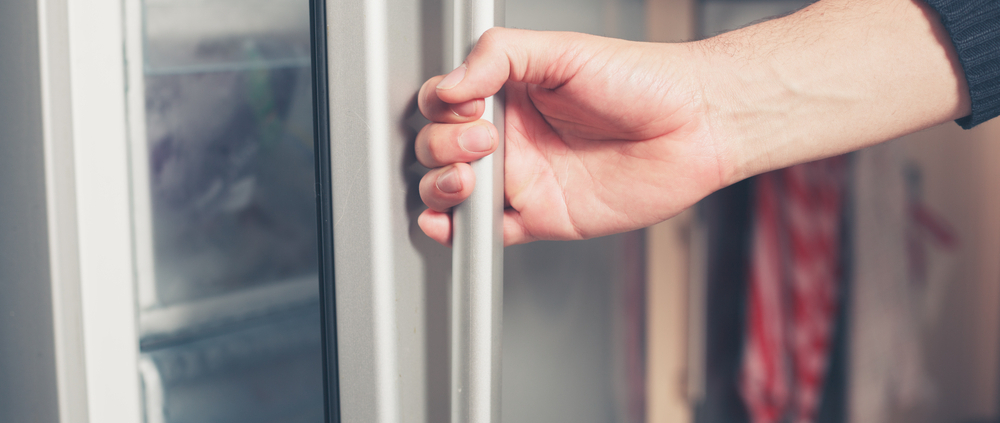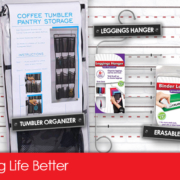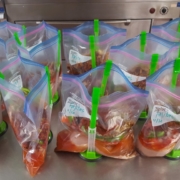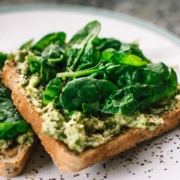Ten Freezer Tips & Tricks
You’re coming home from a long day at work- and we mean an extremely long day. You spilled coffee on yourself this morning, you couldn’t focus all day, you ended up having to stay at work an hour late to fix old work (yep, it was that kind of day). As you’re driving home, with every ounce of energy already spent, you now have to worry about feeding yourself. You’re running through your options on your way home… I think we finished that leftover Chinese food already… we have pasta, that’s pretty easy… I really don’t want to worry about making anything though… And suddenly a smile spreads across your face for the first time that day. Your freezer has come to the rescue with leftovers from last Friday’s dinner!
Our freezers can really come through for us in our hour of need, but are you getting the most out of yours? Here are some tips and tricks to help you keep your ice on the prize:
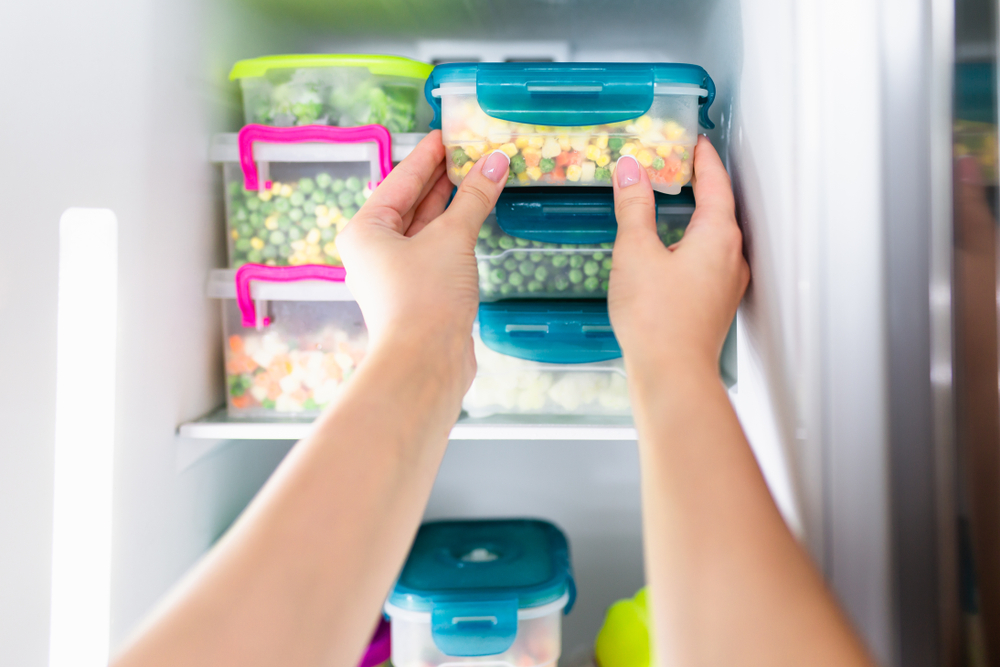
1) Make sure it’s set at the correct temperature
Always ensure that your freezer temperature is set at 0 degrees Fahrenheit. This temperature ensures that your stored foods retain the best flavor, color, texture, and micronutrient content possible. The temperature can be affected if you tend to store pipping hot food in your freezer often or if your power goes off. We know this may be the last thing you’re thinking of as you trip over everything you own in a desperate attempt to find a flashlight, but make sure you keep your freezer (and fridge) door closed during a power outage. If you can avoid opening the door, your food will keep for 24 hours.
2) Choosing the proper container
As inconvenient as it may be to keep track of, according to Eat This, the container you choose to store your food in depends entirely on the food you’re freezing. For example, when freezing sandwiches or wraps you can roll them up in either aluminum foil or plastic wrap. Other foods such as berries can be kept in plastic ziplock bags, stock can be stored in ice cube trays, casseroles in foil baking containers, meal-prep meals in plastic takeout containers, etc. In addition, make sure you wrap your food tightly with the most amount of air removed from the packaging. Getting creative about how you store your food will help save space as well as avoid freezer burn.
3) Just chill
As you probably know, you want to chill your food as quickly as possible after cooking to preserve the quality. However, as stated previously, putting steaming hot food into your freezer will increase the overall temperature and will have a negative effect on all of the stored foods. The best strategy here to both preserve the food and the freezer temp is to place your freshly cooked foods in an uncovered container and put that into your fridge. Once the foods have sufficiently cooled, then it’s safe to store them in your freezer.
4) Label, label, label!
It can be so easy to lose track of what’s in your freezer, especially when you’re storing at maximum capacity. Labeling each package will save you from having to remember where you strategically placed each piece of cooked chicken. Pro-tip: when labeling, make sure to add either the date the food was cooked/stored or (to avoid having to do the math later) the expiration date of the food.
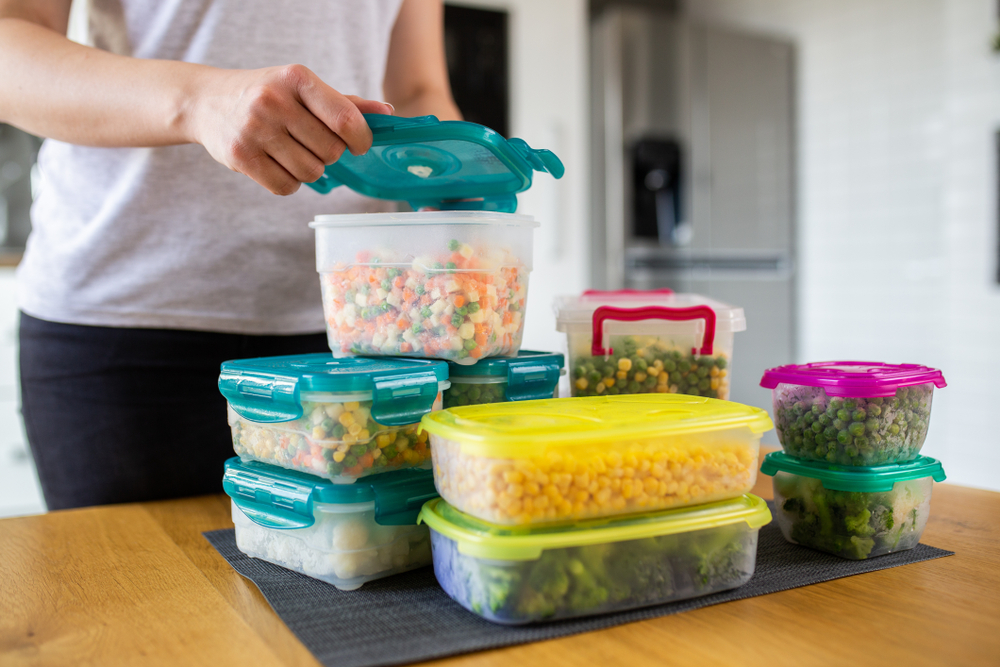
5) Portion out your meals
When you’re splitting your food into containers for storage purposes, make sure to always split it into realistically sized proportions. It’s never recommended to refreeze foods that have already been thawed, so splitting it into proportions will assure that you don’t end up throwing out half a portion because you were over-ambitious about the size of your appetite.
6) Properly defrost
The USDA clearly states that perishable foods should not be thawed on the counter or in hot water. The problem with leaving them in a room temperature environment for too long is that the outside will begin to dethaw and any bacteria will begin to multiply. The ideal situation is to thaw food using your refrigerator, which will typically take roughly five hours for every pound of food. If you need a quicker method though, food can also be defrosted using either a microwave or cold water.
7) Try to avoid refreezing
People tend to believe the incorrect idea that once food has been frozen and thawed that it would be unsafe to freeze again. However, provided that food has been thawed properly, it could be refrozen without any bacterial contamination. Though this is the case, it’s not recommended to do so as this process tends to make the foods much less tasty than it would normally be. As a general rule, although it’s typically not unsafe, you should try your best to avoid refreezing foods.
8) Get creative about saving space
One of the easiest and most obvious ways to save space in your freezer is to make sure all of the air pockets are squeezed out of any bags you’re using to store your food. However, there are other more creative ways to save space. For example, The Kitchn recommends using binder clips to hang frozen veggies from your freezer shelves. These bags can often be difficult to stack because they’re slippery, and hanging them allows space for more stackable foods.
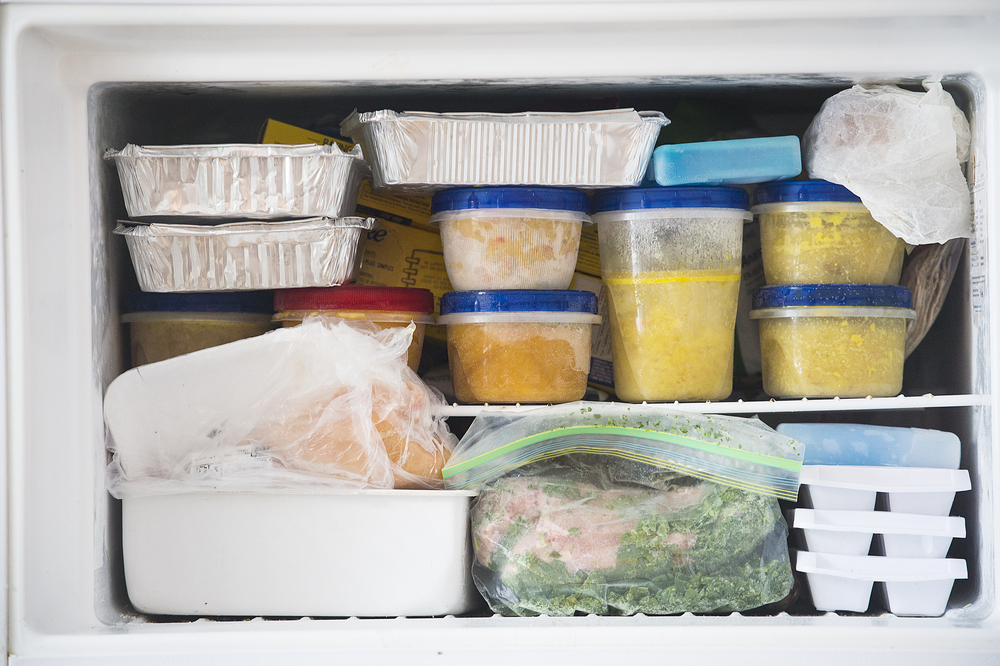
9) Keep an inventory
We’d never ask you to keep an inventory of your fridge as you likely find something in there every day that makes you scrunch your nose and ask yourself, “Where’d this come from?” Freezer quantities are more long-term so keeping an inventory of what’s inside can really help as far as saving space and making sure foods are eaten on time. The system we recommend: When you’re wrapping things up to put in your freezer and you’re adding the label with the date (either expiration or current date), have a list there and fill it out with the same info. This way it’s something you’re already doing on the packaging so it’s not an extra chore to add it to a master list. When you take something out, simply cross it off. Have the list hanging on your fridge so it’s easy and it’ll help you avoid buying those extra steaks because you can’t remember if you have any left (spoiler alert: you have five).
10) How long can I freeze certain foods?
It can be a bit overwhelming trying to figure this out since every food keeps for a different length of time. Here are a few foods and their maximum storage times:
- Fruits and Vegetables: 8-12 months
- Poultry: 6-9 months
- Fish: 3-6 months
- Ground meat: 3-4 months
- Cured or processed meat: 1-2 months

